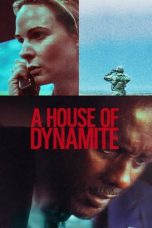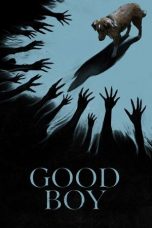Kadaver (2020) Movie Review: A Chilling Dive into Post-Apocalyptic Despair
Kadaver (2020), directed by Jarand Herdal, is a Norwegian post-apocalyptic thriller that explores themes of survival, human nature, and the dark side of humanity in a world ravaged by disaster. The film, which premiered on Netflix, has garnered attention for its eerie atmosphere, unsettling narrative, and intense performances. Here’s a detailed review of what makes Kadaver a gripping and thought-provoking experience.
Plot Summary: A Disturbing New World
Set in a post-apocalyptic world devastated by a nuclear disaster, Kadaver follows a family struggling to survive in a bleak and desolate environment. The story centers around a man named Jacob (played by Thomas Gullestad) and his wife, who are trying to protect their daughter in a world where resources are scarce and danger is ever-present.
The plot begins with the family’s desperate search for safety and sustenance in a world that has been turned into a wasteland. They come across a mysterious invitation to a lavish, yet seemingly sinister, gathering hosted in an isolated mansion. Desperate for food and a sense of normalcy, they decide to attend the event, hoping it might offer a reprieve from their dire situation.
Upon arriving at the mansion, the family finds themselves in a nightmarish scenario where the hosts’ intentions are far more malevolent than they initially appear. The event soon devolves into a terrifying and surreal ordeal, exposing the family to psychological and physical horrors. The narrative unfolds with a sense of mounting dread as the true nature of the gathering is revealed.
Themes: Survival, Human Nature, and Despair
Kadaver delves deeply into themes of survival, human nature, and despair, reflecting the film’s post-apocalyptic setting. The story examines the lengths to which people will go to survive in extreme circumstances, highlighting the ethical and moral dilemmas faced by the characters.
The theme of human nature is explored through the behavior of both the protagonists and the antagonists. The film raises questions about the inherent darkness within people and the extent to which desperation can drive individuals to commit unspeakable acts. The portrayal of the hosts’ twisted and cruel intentions serves as a critique of humanity’s capacity for malevolence in the face of catastrophe.
Despair is a pervasive theme throughout the film, as the characters navigate a world stripped of hope and normalcy. The film’s atmosphere and narrative underscore the sense of hopelessness and the struggle to maintain one’s humanity amidst overwhelming adversity.
Performances: Intense and Compelling
The cast of Kadaver delivers intense and compelling performances that contribute significantly to the film’s impact:
- Thomas Gullestad: As Jacob, Gullestad brings a sense of desperation and vulnerability to the role. His portrayal of a father fighting to protect his family adds emotional depth to the film and enhances the viewer’s connection to the story.
- Marie Blokhus: Blokhus, who plays Jacob’s wife, delivers a powerful performance that conveys both strength and fear. Her character’s emotional journey is central to the film’s narrative, and Blokhus’s portrayal adds to the film’s tension and drama.
- Sofia Kappel: As the family’s daughter, Kappel provides a poignant and affecting performance that highlights the innocence and vulnerability of the younger generation in the face of disaster.
The supporting cast also contributes to the film’s eerie and unsettling atmosphere, with their performances adding layers of complexity to the story’s unfolding horrors.
Direction and Script: Eerie and Unsettling
Jarand Herdal’s direction creates a haunting and immersive atmosphere that enhances the film’s sense of dread and unease. The use of dark, claustrophobic settings and unsettling imagery contributes to the film’s overall tension and psychological impact.
The script, written by Herdal and co-writer Lars Gudmestad, effectively combines elements of thriller and horror to create a compelling narrative. The dialogue and plot developments are crafted to maintain suspense and keep the viewer engaged, while also delving into deeper themes of human nature and survival.
Cinematography and Music: Enhancing the Atmosphere
The cinematography of Kadaver plays a crucial role in establishing the film’s eerie and dystopian atmosphere. The use of dim lighting, shadowy interiors, and bleak landscapes creates a sense of isolation and foreboding that permeates the film.
The music and sound design, composed by Daniel Mortensen, further enhance the film’s atmosphere with a haunting and unsettling score. The music contributes to the sense of tension and unease, adding to the overall impact of the film’s disturbing scenes.
Reception and Legacy: A Gripping Thriller
Nordsjøen has received praise for its chilling narrative, strong performances, and effective atmosphere. The film’s blend of post-apocalyptic drama and psychological horror has resonated with audiences, establishing it as a noteworthy entry in the genre.
The film’s success highlights the growing prominence of Norwegian cinema in the international market, showcasing its ability to deliver high-quality, thought-provoking films with a unique and engaging perspective.
Where to Watch Kadaver Online
As of 2024, Kadaver is available for streaming on Netflix, providing easy access for viewers interested in experiencing this intense and atmospheric thriller.
Conclusion
Kadaver (2020) is a gripping and unsettling post-apocalyptic thriller that explores themes of survival, human nature, and despair. With intense performances, effective direction, and a haunting atmosphere, the film offers a compelling and thought-provoking viewing experience. Its exploration of the darker aspects of humanity and the challenges of living in a ravaged world makes it a standout entry in the genre, appealing to fans of psychological horror and dystopian drama.
















